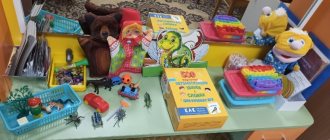It is no secret that the number of children with speech problems is growing rapidly from year to year. There are not enough speech therapists in kindergartens. And those who do take on a limited number of children, usually only those with severe speech impairments.
All that remains is to look for a private speech therapist.
And then the parents are at a loss: how to find him?
Maybe through free advertisements on the Internet? But there is an opinion that only inexperienced, beginners or “bad” specialists who have a chronic shortage of clients live there.
You often hear from parents: “They only go to a good speech therapist based on recommendations!” But the speech therapist recommended to you by a friend or acquaintance may not meet the deadline in which he corrected the same speech defect in someone else’s child. There are no identical children, just as there are no identical time frames for eliminating speech problems. Hence the subsequent grievances against the speech therapist.
Nowadays it is easy to find a speech therapist. It's harder to know if you've found the right one for you.
What should you pay attention to when choosing a speech therapist?
Here is a sample list of questions that will help you choose the right specialist for you or your child.
When to start worrying and when to just wait?
— It happens that parents complain that the child does not start talking for a long time. What does "long" mean?
“Speechlessness” may have different reasons. Children not only do not speak with speech impairments, but also with hearing impairments, intellectual impairments, and autism spectrum disorders.
“Long” is when the child is one year old, but he does not respond to his name, does not understand simple addresses (“let’s go to bed,” “wash hands,” etc.). Or when, after three years of age, a child understands spoken speech, he has many gestures, but no independent speech.
If at the same time the child is too “independent”, does not look into the eyes, avoids physical contact or, conversely, loves hugs too much, if he has a reduced sense of pain, then you need to quickly contact a specialist.
In these cases, you need to first check your hearing, preferably more than once. Visit a neurologist, get a consultation with a speech therapist at two years. There is such a wonderful study - evoked potentials (a method of studying the nervous system based on recording electrical potentials of the brain in response to any influence - Ed.), it is quite objective.
— What features in the development of a child’s speech should cause concern for parents? When should you immediately contact a specialist, and when is it better to wait?
— When it comes to speech, I don’t like to wait. It is acceptable not to utter a word for up to a year; there may not be a short phrase for up to two years; and an extended phrase for up to three years. If up to two years of age the child is social, communicative, and understands spoken language well, then we observe for another three to four months. But three years is a “Rubicon”. At the age of five, speech completes its development, leaving the opportunity to accumulate a vocabulary throughout life. If the appearance of sound complexes (combinations of sounds, for example “au” - Ed.), words and sentences does not fit into the deadlines, this is a reason to see a doctor and speech therapist.
You should be concerned if a child has a poor vocabulary (a vocabulary that is not appropriate for his age); incorrect use of words - speech agrammatisms; incoherent speech (badly retells fairy tales); failure to pronounce sounds and, possibly, features of the formation of phonemic hearing.
In addition, you need to pay attention to the understanding of spoken language, the ability to communicate and the emotional development of the child.
— Are the most common causes of speech disorders neurobiological, anatomical (structure of the speech apparatus), psychological, or something else?
— Most often it is impossible to name one specific reason. Let's say my mother smoked a pack a day (an example from practice) - this could be the reason.
If these are problems with sound pronunciation, then the reasons may be a violation of the structure of the articulatory apparatus or muscle tone, or combined.
If a child does not speak, for example, with motor alalia (absence or underdevelopment of speech in a child with normal hearing - Ed.), most often this is a pathology of pregnancy and childbirth: rapid or prolonged labor, asphyxia.
Increasingly, cervical-head injuries during childbirth are cited as the root cause of speech disorders.
This was the opinion of, in particular, A.Yu. Ratner and P.G. Zamaratsky. “10-15 minutes is enough. oxygen starvation of the brain, so that this affects its functioning. In 70-80% of newborn children, the cervical spinal cord is affected, in 35-40% - the thoracic and lumbar spine,” wrote Professor Ratner. In the future, this results in headaches, speech problems, difficulties with mastering the curriculum, disobedience, and inappropriate behavior.
There must be time for passion
– “Speech therapy” children require more attention. Are there any mugs worth donating to? How then can you find time for your child to just play and be idle?
– We said that in the elementary grades you need to learn three basic functions: reading, writing and counting. It’s not Moscow studies to study biology, but precisely this. And we must definitely develop some kind of interest, which, perhaps, will help in life, and maybe become a start to choosing a profession. We are all interested in something.
Primary school is the period when a child should try. For example, he went karting. What boy doesn't want to go karting: there are cars there. But I came across a teacher who only forces these karts to be cleaned and polished. And that's it, the desire is gone. Well, okay, we don’t want that, now we want to go to another circle.
We came to fight. It’s the same thing there: adults fight, and everyone else watches. And again you can search. You need to find a specialist who will interest you, make you fall in love, let you roll over, and hit the punching bag. This is also a difficult search. It is difficult to find any specialist. Have to search.
I am for the child to have a hobby. And time should be allocated for it. Or then, no hobbies at all, just school. But I don't like it that way.
And so that you have enough time for everything and still have time to rest, a schedule can help. It's just compiled incorrectly. Children love it when it is very beautiful. They attached adhesive tape to cardboard, photographed the child himself: here he is reading, here he is writing, here he is counting, here he is eating, and they lined up his entire daily routine on this adhesive tape. I did it and peeled it off. He is comfortable, he has time for everything. He makes it in time. He lives in such a good rhythm. And then look, if the load is heavy, then something will need to be changed, removed.
If a child is teased for burring or lisping
— How hard can you work with a child on speech development, so as not to cause other problems - psychological?
— Now there is a strong tendency to teach all children as early as possible: “reading from the cradle,” “talking before walking,” etc.
I am categorically against it when a child is developed for prevention: “let the child work out, it won’t get worse.” I think it will be worse.
And the consequences may be delayed. Because those people who in childhood, instead of playing, sat through classes to learn a couple of English words, in adulthood try to “play at life” and “play at being daughters and mothers.”
A preschooler is not required to study; he has another leading activity - play. Before school, a child must be able to play well and a lot, be able to interact in the game, understand the rules, and correspond to the proposed role. As paradoxical as it may sound in the mouth of a speech therapist, it is better to let them have a lisp, but just ride down the mountains and play hide and seek. There will be more benefits for future social life.
The only time a speech therapist should be irreconcilable is if the child has no speech at all and communication is impaired.
— Do parents often complain that their children are teased by their peers because of speech disorders?
— Children do not hear very well and distinguish between sound pronunciation disorders. I had two wonderful boys. Misha did not pronounce [r], he was in the second grade, [r] did not affect his studies, his grades were good. He didn’t want to fix anything—everything suited him. Mom, as motivation for classes, said that I needed to fix it, otherwise the guys would tease me. To which Misha replied: “What kind of friends are they then?”
The second boy, Vitaly, was in the sixth grade, there were a little more sounds for correction, but otherwise the situation was similar. The mother approached her son with the same motivation, the answer was: “Why would they suddenly tease? Why didn’t you tease me before?”
I still recommend putting on the sounds, and preferably before school, so as not to narrow the range of available professions in the future. Speakers, lecturers, politicians - they all must have clear, intelligible speech with the correct sound.
In addition, incorrect sound pronunciation is often accompanied by a violation of phonemic hearing, which means that if not corrected, there will be errors in writing.
Are you both comfortable with the new speech therapist?
Listen to your feelings and those of your child.
Naturally, not every child will make contact with the teacher immediately during the first lesson. In turn, a smart parent will always help build a relationship with a specialist.
But if the speech therapist has not found an approach to the child after three meetings, there is reason to think about the question: “Is it worth further spending time and money?”
And finally, here are two questions that parents most often ask speech therapists.
How to check the professionalism of a speech therapist?
— When can a specialist help a child cope with speech disorders, and when not? How to determine that the problem is unsolvable and stop annoying your child with exercises?
- You can’t give up and give up. They help those families where there is an iron will and perseverance of the parents. The child himself cannot organize his own activities.
As a child, I often went to visit my grandmother in the village. Grandma had a sister. During her pregnancy, she fell from a cart and hit her stomach hard; the child was born sick. I don’t know if this is a family legend or if this is exactly how it all happened, but Volodya, now deceased, was one of those who are kindly called village fools. He did not speak, except for five or ten words. As a professional, I now understand that Volodya could have been helped if they had worked with him to develop his speech in childhood. But then it was impossible, and the parents probably accepted what happened as fate.
At the institute we were taught: “you should make any child fit into the norm.” Of course, not everyone, due to the severity of the problem, will be able to survive, but we must create all the conditions.
— It happens that one specialist helps, but another does not. How can parents build the right “route” when searching for a suitable speech therapist?
— Professionalism is my sore subject. I teach at a university and I know that universities have been shaking for a long time. The programs have been revised and teaching hours have been reduced. But the biggest problem, in my opinion, is the correspondence form of training for speech therapists, when inadmissibly little time is allocated for practice. Clinical cases, specific cases of correction and training - it is impossible to “go through” this on your own.
Let's try to give specific advice on finding a speech therapist:
Specialist education . This is a diploma of higher special (defectological) education, better than full-time education.
Advanced training and additional education . For example, if a specialist positions himself as a professional in the field of speech correction for children with autism, then he must know ABA therapy. If you are involved in the correction of dysarthria (impaired pronunciation of speech due to insufficient innervation of the speech apparatus - editor's note), then you need knowledge to conduct speech therapy massage, the ability to work with prosody (intonation-expressive coloring of speech - editor's note).
Continuity: from whom did the speech therapist study ? A teacher must be a respected person in the profession. Of course, it’s good to have feedback: does the teacher know this specialist, because a student is a “piece” of work. For example, I am a student of Maria Fedorovna Fomicheva.
In which institutions did the specialist work, and where does he work now? There are so-called “branded” places that allow you to judge the status. True, you also need to ask how long the person worked there.
You should ask specific questions about your problem . For example, does the specialist know how to work with a non-speaking child and what systems of work he knows. In speech therapy, strange as it may sound, there is no method for working with alalia. There are methods, techniques, approaches associated with specific names, but there is still no methodology. It is important that the specialist not only name names, but also tell what exactly he is going to do.
It is important how many children were in his practice . A novice speech therapist can work with a child, but a parent has the right to know that his child is a professional start-up. Typically, such a specialist offers diligence in return.
The speech therapist is obliged to give a prognosis and name the number of classes required . Of course, with complex speech disorders it will not be possible to do this right away, but you can set intermediate goals. Parents should not be satisfied with the answer “we’ll see how it goes.” I usually say: give me a few sessions to determine how the child will interact with me. A child, like an adult, may be sleep-deprived, agitated, “not in the mood,” etc. And at the next lesson everything will be different: I got enough sleep, wasn’t capricious, was well-fed and able to work.
Professional interdisciplinary connections are important - with whom the speech therapist collaborates . When a child has a complex diagnosis, an integrated approach to correction is important.
— A free consultation with a speech therapist can only be obtained in a kindergarten or clinic. How do you assess the qualifications of speech therapists working in these institutions?
— Free consultations are available only in government institutions, but there may also be paid ones, this is now allowed. As for qualifications, they, like conscience, either exist or they don’t. The institution itself has nothing to do with it.
It seems to me that the problem is in the formal approach to the work of regulatory authorities, which boils down to checking documentation. The problem is that there are practically no professional associations. There are no sections or round tables in the professional space. And if there are, then they are only paid. Here is the answer. The main criterion is the conscience of a specialist. Only he himself, having paid, can go and learn - or buy a certificate without studying. Choose a topic for self-education and hone your skills - or stop there.
What are the qualifications and experience of a speech therapist?
Probably, with this question you will start communicating with an unfamiliar speech therapist whom you found yourself.
It’s good if the speech therapist himself offers to look at a copy of his diploma with the qualification “Teacher-Speech Pathologist, Speech Therapist.”
It’s even better if you have the opportunity to get acquainted with his professional portfolio, when studying which you need to pay attention to how often the specialist takes advanced training courses. This is an indicator of whether a person is developing professionally and whether he strives to improve the results of his work.
About very specific
— What modern effective methods exist for correcting dysarthria, dyslalia, stuttering, alalia, aphasia, etc., in addition to classes with a speech therapist?
— There are three methods: medical, psychological-pedagogical and hardware (non-drug). The selection of working methods in different areas is important.
To correct dyslalia (violation of sound pronunciation with normal hearing and intact innervation of the speech apparatus, manifested in distorted pronunciation of sounds, in the replacement of sounds or their mixing - editor's note), the knowledge and skills of a speech therapist are sufficient. A speech therapist who deals with dysarthria (impaired pronunciation of speech caused by insufficient innervation of the vocal apparatus - Ed.), rhinolalia (violation of voice timbre and sound pronunciation caused by anatomical and physiological defects of the speech apparatus (congenital cleft palate) - Ed.), stutterer , must know the techniques of speech therapy massage. With dysarthria, it is necessary, in addition to classical techniques for producing sounds, to work with the normalization of muscle tone, the prosodic component, and breathing. For a child who stutters, a relaxing general and speech therapy massage is needed.
With dysarthria and stuttering, it is important to work on establishing a long oral exhalation and establishing a diaphragmatic type of breathing. This function is well trained and stabilized on the BFB-logo simulator; the child himself controls the process.
A very large block of physiotherapeutic procedures is also aimed at correcting speech disorders: amplipulse therapy, laser therapy, transcranial micropolarization.
Speech requires high-quality auditory perception and “phonemic hearing.” Since 1940, there has been hearing therapy using the Alfred Tomatis method. A more modern method is the computer speech correction program Fast ForWord; it develops phonemic awareness, concentration and cognitive functions.
Speech is a coordinated motor act. Therefore, it is important to carry out not only speech therapy, but also therapeutic massage, exercise therapy, cerebellar stimulation (balance exercises), and use a biofeedback-myosimulator.
As for classes at home with parents, here we should talk more about the cooperation of the speech therapist and the family. In a trio: specialist-parent-child, two people must want to study. The specialist a priori wants to help. If the child does not want to, then the professionalism of the specialist and the love of the mother will help to include him in the classes. If the mother does not participate, then the time for correction is extended.
It is very important that parents and their child read a lot, play and complete tasks from various specialists. If a mother takes on the functions of a professional, this most often happens when she receives additional education (speech therapist or psychologist), or in the case when there is no specific specialist at her place of residence.
How are the psyche and speech connected?
— What psychological characteristics of a child can cause speech disorders? How does this affect the work of a speech therapist?
— Psychological problems arise in completely different people, and they are not triggered by speech problems. But secondary factors associated with speech disorders can sometimes correlate with psychological characteristics.
For example, a child with rhinolalia spends a lot of time in hospitals: operations, rehabilitation. At the same time, the process of his socialization is disrupted. But I know a huge number of children and adults who do not experience any communication problems due to the sound of their voices or traces of previous operations. I had a friend like this when I was a kid who grew up to be successful in business. This also applies to people with stuttering and dysarthria. If a person is the life of the party, then stuttering will not interfere with this.
In the case of verbal negativism (refusal to speak - Ed.), it is very important how the family accepts the child. No matter what conflict situations arise “in the sandbox,” a mother should always be on the side of her child.
As for the work of a speech therapist, his competencies allow him to take into account any characteristics of the child, including psychological ones. A speech therapist must be able to captivate, organize a game, and switch. Nowadays it is difficult to interest a child in pictures cut out in the last century and pasted on gray cardboard. Classes with children require knowledge and ability to use computer training programs, sensory games, modern devices, all sorts of tricks, and a specially organized special workspace.
— If a child had dyslalia or other deviations in speech development, does this mean that in the future it will be difficult for him to learn foreign languages?
— There are no restrictions or special difficulties in learning any other language. Even general speech underdevelopment (GSD) is not an obstacle to this. My work experience has shown that children with ODD at school learn a foreign language (English, German, French) easier than written Russian.
We have a lot in common in the organization of the phonetic system; sounds differ in binary oppositions (dullness - voicedness, hardness - softness, etc.), which means that there can be their replacements in both oral speech and writing.
What to look for when choosing
You should look at the following:
- Availability of higher education. The defectologist must have a diploma confirming graduation from the relevant university and the ability to work with children.
- Experience. An important criterion. However, sometimes novice speech therapists understand their specialty better than experienced ones.
- Methodology. The expert has special techniques that he follows to help the child restore speech. They need to be selected individually, sometimes several methods are combined.
- Work plan. Check with the teacher about how the classes will be conducted. He must tell you what is planned. You can ask the expert to tell you the names of the books and manuals used.
About writing disorders
— What are the most common causes of written language disorders such as dyslexia and dysgraphia?
— The most popular dysgraphia is a violation of language analysis and synthesis and acoustic problems. Not the least negative role here is played by the phonemic teaching method, which has been chosen as the basis for the study of literacy in the last 20-30 years.
Children skip letters and syllables and replace sounds that are similar in sound. Many authors believe that children have impaired phonemic hearing. But there cannot be a total violation. With this logic, hearing-impaired children would never learn to read and write.
With dyslexia, in addition to the main symptoms of the disorder (analysis and synthesis, phonemic hearing), the most common problem is the speed and method of reading. Even if children do not make mistakes, but read slowly and syllable by syllable, “guessing” the endings of words and phrases, this is a dyslexic disorder.
The most important thing is that the child tried
– If the parents seem to be happy, it is clear that their “speech therapy” child is really making some progress, trying hard, but the teacher thinks that the child is weak and continues to give C grades?
- This is, of course, bad. The most important thing is that the child tried. He didn't try for a C grade. So effort is worth giving a grade. It is no coincidence that, for example, music schools have disadvantages. For example, they give it a five with three minuses. These disadvantages are the degree of gradation of success. And sometimes you may not deliver anything. I tried, and well, and well done. Because if a person tries, he should be rewarded for his efforts.
The reward system should be flexible. Our center has extensive experience working with children with autism. In classes they are not rewarded only for the final result. When will he be there again?
Encouragement from the teacher can be a word for some specific small task: “Where did you try, let me see.” I tell schoolchildren: “Let’s choose the three best letters and give them a plus.” Or: “Let’s write for dad. After all, we will try for dad.”
You can set a specific task: “Let you now write the text from memory.” And we don’t look at the mistakes, but the child is happy, he made it. We will talk about mistakes later, in another task.
When I worked as a school speech therapist, I rewarded children for small pieces of work. I told them: “All the work didn’t work out very well, I will only appreciate this exercise, and here you did everything just wonderful!” I think this approach is reasonable.
– Is it possible for parents to offer their child some kind of material bonuses for classes?
- Certainly! All incentives just need to be thought through. For some this is an encouragement, but for others it is not an encouragement at all.
I sometimes ask parents the question: “What would be an encouragement for you?” The smart and fast ones answer: “Money.” This is natural, an adult wants money, because with it he can buy any reward he wants. It's difficult for children. Children cannot do something like that directly.
Although there was such a story in my life when my mother, a fourth-grade student, decided to ask if I knew natural history. And I told her everything, answered all her questions and received a metal ruble as a reward. It was the ultimate dream, because the ruble is very, very much. For a ruble you could buy a lot of ice cream, for example. Mom never indulged in money; everything amounted to 20 kopecks for a pie and tea, relatively speaking. And then a ruble was given. This example is about an individual approach.
Therefore, for some, emoticons, flags, plus signs are suitable as encouragement, for others - candy. At the center, we reward children with candy, cut cookies into pieces, and for a small task completed, part of the task is micro-encouragement: “You did it!”
– What if the teacher gives a C, thinking that this will give the child motivation to study better?
– I just want to say: is it possible to leave this teacher? In my opinion, the concepts of motivation and encouragement, or rather even punishment, are confused. Evaluation in this case is not motivation, but punishment.
When training, punishment does not work, only encouragement for any success, even minimal.
Such a teacher needs to be somehow pushed towards reading books on behaviorism, the study of human behavior. If a child has studied, he cannot be punished for it. Punishment is for misconduct, not for learning.
– How do you motivate a child? So he writes with errors, counts with errors, and he doesn’t care. How to explain why to correct the situation?
- I'm used to it. Apparently, he was put in such a situation that he stopped worrying about it. There are a lot of mistakes, they are growing. There must be types of work in which there will be no errors. For example, the task: just copy the text. Not accurate copying, not competent writing, but only copying. Or dictation and only speed dictation. And a score for speed. But we have several at once: we dictate quickly and give marks for literacy, and even accuracy. And if it’s an essay, then also for aesthetics, for lyrics and for mistakes. Therefore, it will not suit such a child. We need to show him that he can, that he can cope.
When you start working with such children, at first they “hate” you: you force them to do something they don’t like to do. I usually instill confidence in the child and say: “I will teach you in such a way that it will not be scary. It’s definitely not scary.”
Very often I don’t let you check the entire text, but select a couple of sentences and say that the child made a mistake in them. I put a dot in the margin - there is an error on the line. This is no longer very scary, because not the whole text. And the child immediately finds this mistake for me. “Wow, almost without checking, you “see” errors, it’s great, simple!” And he is proud that everything works out quickly and at the same time I do not scold him for correcting it, as they usually scold him for mistakes, but praise him.
– All speech therapy problems should be solved by what grade?
- All? Traces of many complex systemic disorders can remain for life. If speech in general was formed by school, and writing and reading impairments appeared already in the 1st-2nd grade, then it is advisable to complete the correction by the end of elementary school. If a child did not receive proper help in elementary school, and the problems persist, then a speech therapist can be contacted throughout the entire period of schooling. Let me list the optimal timing of correction.
So, if three people are included in the process: mother, child and specialist, then provided that the child has 4-5 in mathematics, written speech disorders can be corrected within a year. If a specialist works without the help of parents, then in two years. If a child’s cognitive functions are reduced, the process lasts for many years.
Risk areas
— How can parents detect a problem before the teacher points it out?
— There are so-called risk groups: children with perinatal and natal pathologies, children with delays in speech development, with mental retardation, with a pronounced delay in the formation of graphic skills, bilingual children, retrained left-handers.
What should parents do? If a child has a speech delay before school, then it needs to be corrected, or, if this is not possible, then minimized. Do not teach children to read too early, because they have not developed selective attention, without which reading and writing are impossible, and also their arbitrariness, memory and speech have not been formed.
Memory problems are the result of very early learning, because a system of inadequate demands is created.
The involvement of new brain structures in the organization of attention begins only at 6-8 years, when the frontal lobes actively begin to mature and effective visual differentiation begins to form. If a child begins to read early, then he develops an inadequate reading mechanism, in which several letters are perceived and the gaze runs away, and then returns many times. A so-called “guessing reading” is formed.
When a problem is discovered, you need to go to specialists: a neurologist, psychologist and speech therapist. They will offer medication support, methods and methods of correction, and advise modern rehabilitation methods.
— Are dyslexia and dysgraphia corrected, or will the child simply have to adapt and somehow get around the difficulties that arise when reading and writing?
— If dyslexia or dysgraphia is an independent disorder, without combined problems and secondary disorders in the form of persistent speech problems or cognitive difficulties, then they are perfectly amenable to correction. It's important to start on time.
In my practice, there was a child who had speech problems before school, they were corrected, and in elementary school he coped with the program, doing especially well in mathematics. But by middle school, due to the complexity of the dictionary and the increase in the volume of assignments, serious problems began, and a persistent dislike for the subject “Russian language” formed.
Difficulties manifested themselves in the following cases: when selecting test words; when mastering morphemic analysis of words; when differentiating prefixes and prepositions; when isolating and differentiating according to the meaning of word-forming and formative morphemes. When we achieved success in the process of correctional classes, the child came to the conclusion that the Russian language is not so difficult, and his grades improved.
But there are also those who simply adapt, avoiding writing in every possible way.
The child needs to be given an exemption, like from physical education.
– It turns out that a child with speech therapy problems at school is in a state of stress. Stress at school, because things don’t work out, and the teacher doesn’t always understand why. In addition to schoolwork, classes with a speech therapist, and sometimes a neurologist gives some exercises.
– Mechanisms to support such a child exist. Let me draw a parallel. For example, a child breaks his leg and is exempt from physical education. After all, no one invites him to classes and gives him two grades for failing to pass the standards. But for some reason, speech therapy errors and learning difficulties are not interpreted as a disorder or pathology that requires, in some sense, leniency. It is necessary for the teacher to show not only tolerance, but simply universal wisdom.
So a student came to class, and he was beautiful in himself. And there is nothing unusual about it. Just like everyone else. But he developed a problem in the form of a writing disorder, dysgraphia, because before school he was a “speech” child, or did not keep up with the general pace of development, or did not fit within the allotted framework for mastering writing.
Why shouldn't he just temporarily count all these errors as one? Or don’t count them as mistakes at all. Give exemption, like from physical education. He still goes to classes, studies, studies. And don’t say all the time: “As long as I tolerate you, and the time will come, I will punish you if you don’t improve!” If we undertake to help, then we must help to the end.
In the end, we write, read, count in order to receive information, and not in order to say: an error, not an error. Therefore, the child needs to be helped. And for each, any minimal personal success, praise him.
A boy taught me who said: “The teacher will never see what I am capable of, because he is used to me always making mistakes. I work with you, and everything works out for me.” I suggested to my mother: “Ask this teacher for additional lessons, so that he will finally look at the child more closely, not against the background of his overall performance, but his personal successes.” After additional classes, the teacher said: “It turns out you’re not a fool!”
– What is dangerous to miss in elementary school? What is important not to miss?
– In primary school you only need three skills: reading, writing and counting. Dot. Nothing else. And you need a good teacher to teach this. Because if the teacher is difficult, she creates fear and reluctance to learn for the entire subsequent period. You have to like the teacher.
The teacher must influence the microclimate in the classroom so that the children feel comfortable.
All parents strive to ensure that the teacher is the strongest, the smartest. When parents choose a school for a child, they need to pay attention not only to whether the teacher is “strong” or not, but also to whether she is suitable for the child. In general, absolutely everyone remembers GOOD people and good teachers; moral things are instilled by good people. How demanding is the teacher, is she ready to differentiate the child? The child is assessed from early childhood, but at school this reaches its climax.
I can look at this situation as if from the outside, because when I worked as a school speech therapist, I saw how children are drawn to those teachers who know how to share and can resolve a difficult situation in a game.
All children love the young and beautiful, and those whom you can take by the hand and walk with her in pairs to the dining room, without fear that she will shout “get into line.” And everyone is fighting for this hand.
And maybe this teacher is not the most titled, but she can calmly explain the material and give adequate grades. And in the classroom there is a normal, healthy environment.
Many people say that modern children are cruel. Of course, there will be cruel ones if the teacher starts shouting: “You should have taught mathematics a long time ago instead of running, training your legs somewhere.” Well, who will like it? If, on the contrary, they say about a child: “Guys, look what a boy he is. And here he knows how to draw,” the child will open up to him. It’s all very easy to organize and find and highlight each student’s strengths and abilities.
I always relied on hooligans. If you attract them to you, the microclimate will be formed correctly. I have always liked extraordinary children, and it doesn’t matter whether they had special needs or not. You meet different children in practice: a rebus child to whom you need to find the key, or a loser child who attracts problems like a magnet, finds himself in absurd situations, or such a “prickly hedgehog”, everyone has already offended him, he defends himself.
You see that the child requires your attention, he needs support, praise, an interesting assignment, and it’s not even a matter of dysgraphia, but simply if you support the person, everything goes differently, a different emotional mood.







